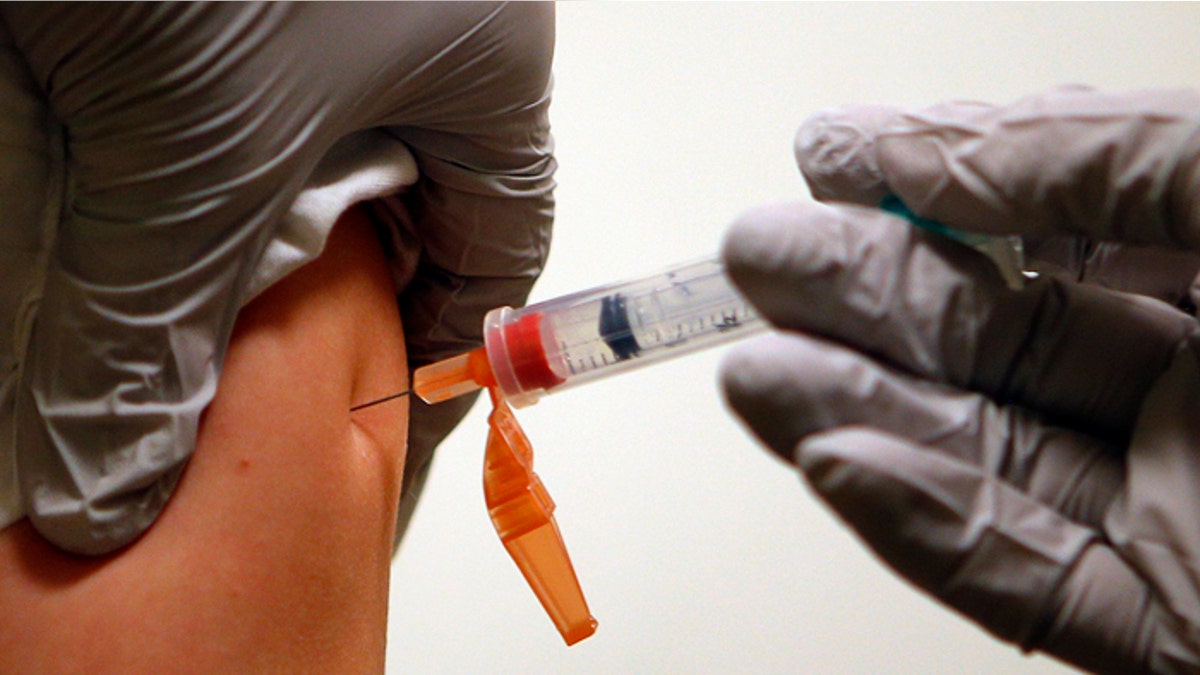
Six-year-old Diego Sanson receives an influenza vaccine injection at Massachusetts General Hospital in Boston, Massachusetts January 10, 2013. With flu cases in this city up tenfold from last year, the mayor of Boston declared a public health emergency January 9 as authorities around the United States scrambled to cope with a rising number of patients. REUTERS/Brian Snyder (UNITED STATES - Tags: HEALTH SOCIETY) - RTR3CANZ (REUTERS/Brian Snyder)
A preliminary study has found that a vaccine may reduce the risk of multiple sclerosis (MS) in people who have beginning signs of the disease. About half of people who have had their first episode of MS go on to develop full-fledged MS in two years, while 10 percent will have no more MS symptoms.
Researchers in Italy turned to a vaccine used to prevent tuberculosis in other countries. The vaccine, called Bacille Calmette-Guerin (BCG), contains a weakened bacterium that induces an immune response that might, in turn, dampen inflammatory factors. Some have theorized that MS and other autoimmune diseases are on the rise in industrialized nations because individuals in these countries are exposed to fewer infections early in life. This is known as the “hygiene hypothesis,” which suggests that exposure to minor insults like bacteria and parasites aids in the development of regulatory cells that help moderate the immune system.
“Benign exposures to microbes help prevent autoimmune diseases and allergies,” said study author Dr. Giovanni Ristori, of Sapienza University in Rome.
Published online in Neurology, the study included 73 people who had experienced one episode that suggested MS – such as numbness, vision problems or problems with balance. They also had received a brain MRI that showed signs supposing a diagnosis of MS. Of the participants, 33 received one injection of live BCG, while the others received a placebo vaccine.
All of the participants had brain scans once a month for six months to look for lesions, which occur in MS. They then received an interferon drug, a common treatment for the disorder. After that, they took a disease modifying MS drug recommended by their neurologist.
After the first six months, those who received the vaccine had fewer brain lesions than those who got the placebo, with an average of three lesions for the vaccinated versus seven for the unvaccinated.
By the end of the five year study, 58 percent of the vaccinated participants had not developed MS, compared to 30 percent of those who received the placebo. The results are comparable to the effects of existing disease modifying treatments. There were no major side effects during the study and no difference in side effects between those who received the vaccine and those who didn't.
The authors said that utilizing the vaccine for MS has its advantages, as it is safe and cheaper than existing treatments.
"These results are promising, but much more research needs to be done to learn more about the safety and long-term effects of this live vaccine," said Ristori. "Doctors should not start using this vaccine to treat MS or clinically isolated syndrome."
In an accompanying editorial, Dr. Dennis Bourdette and Dr. Robert Naismith expressed concerns about long term effects of taking multiple vaccinations over a lifetime and also warned that doctors should not use BCG to treat MS off-label, as its safety and effectiveness is not well established.
Still, the results provide support to the "hygiene hypothesis" that exposure to certain infections early in life might help reduce the risk of autoimmune diseases, according to Bourdette.




















